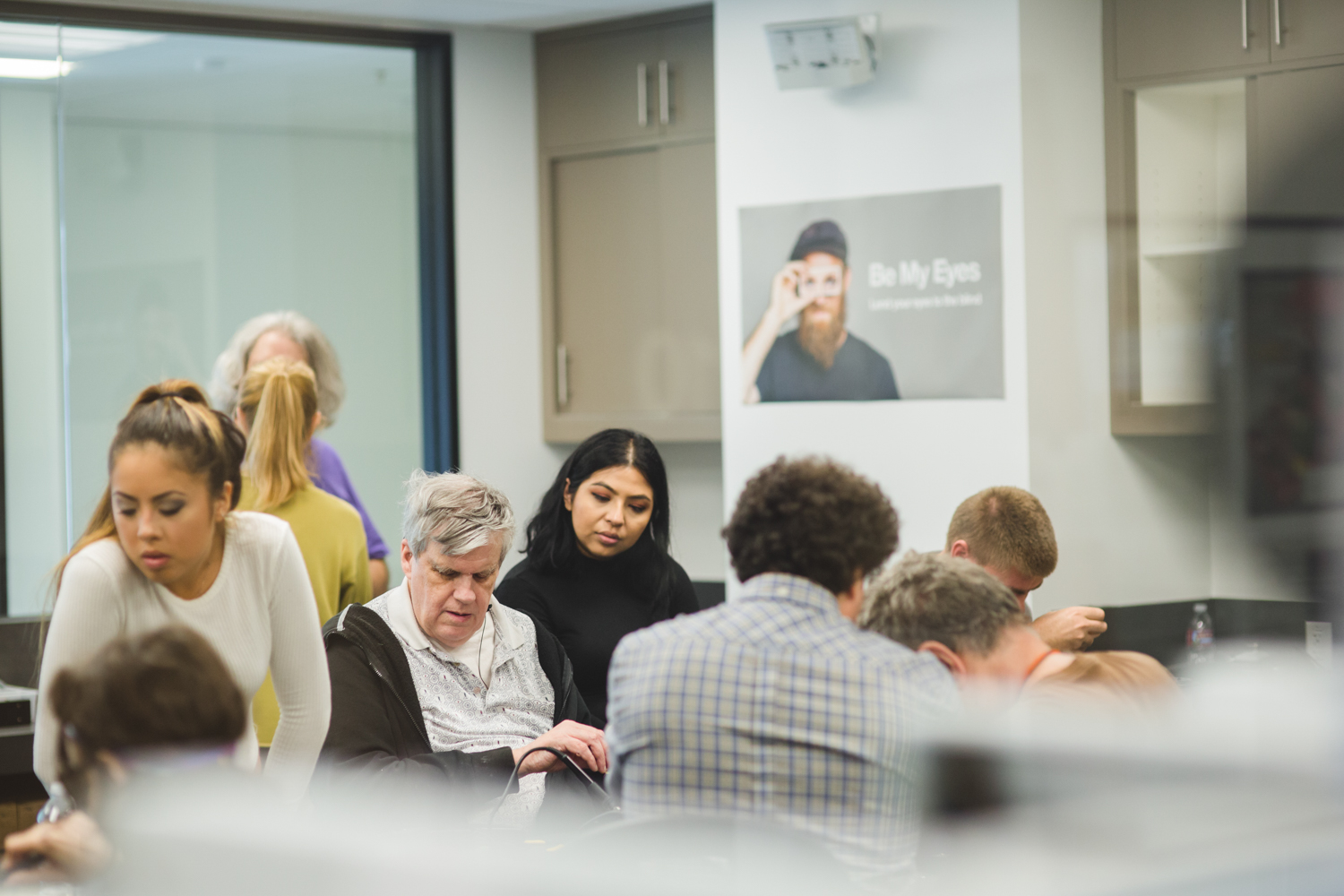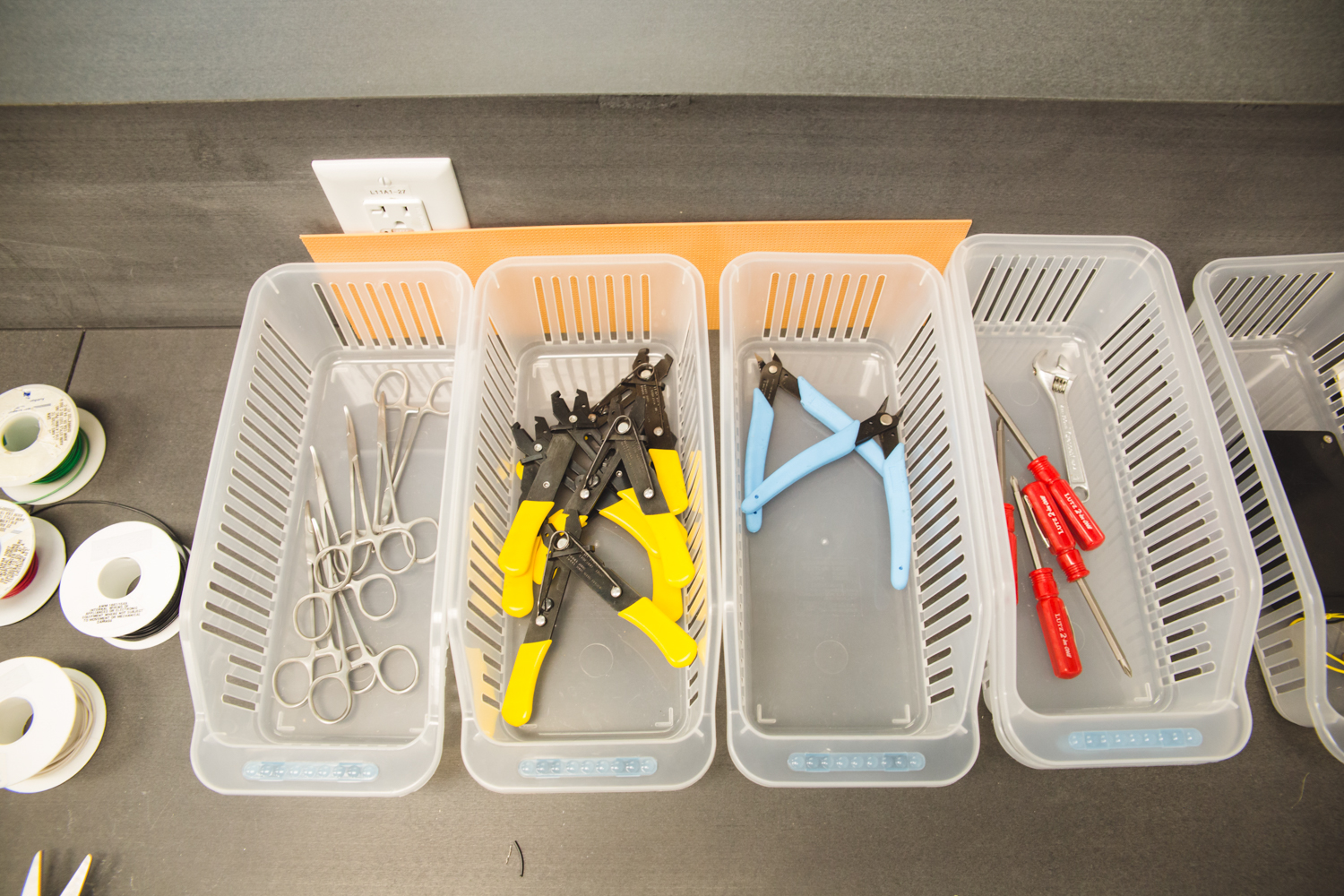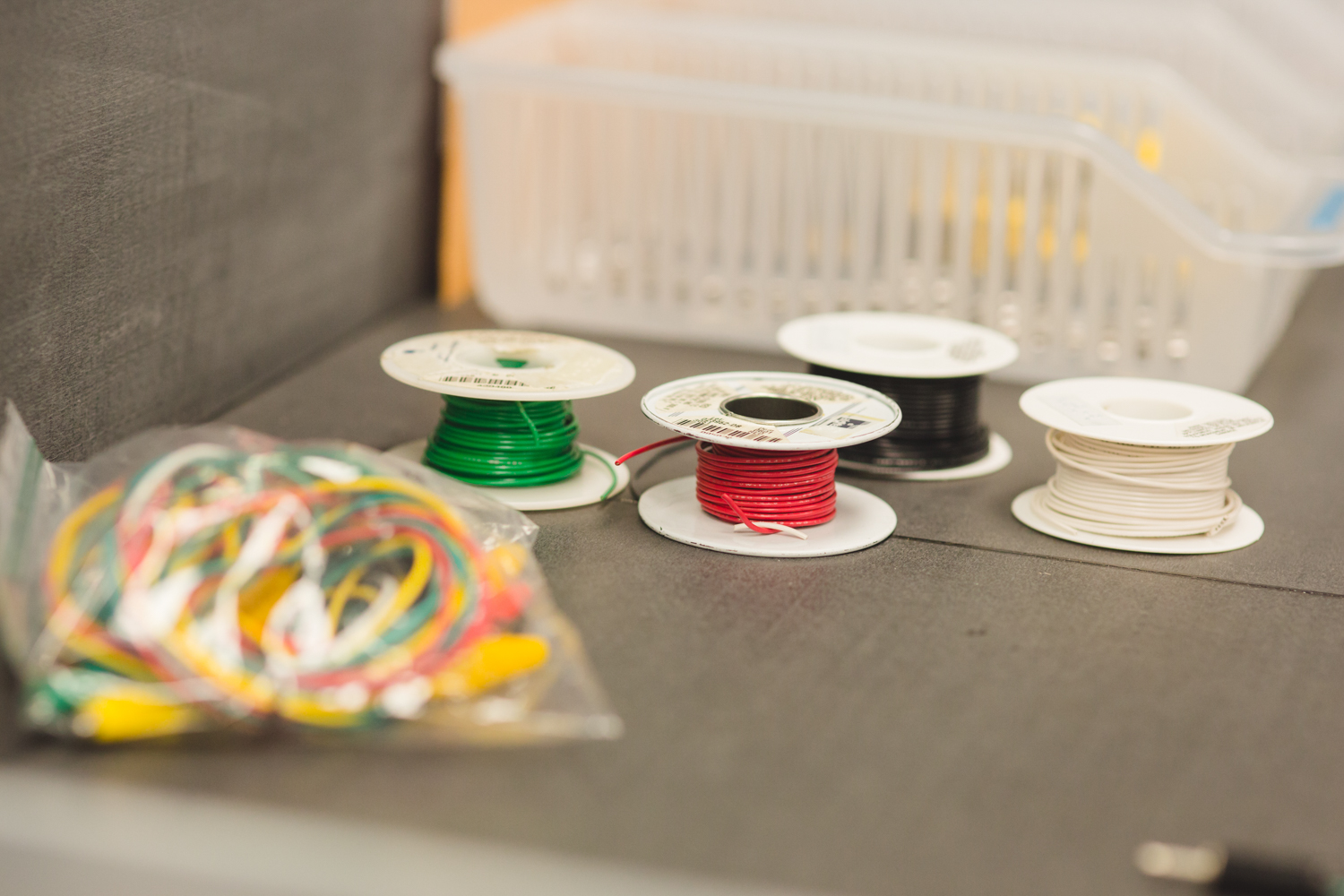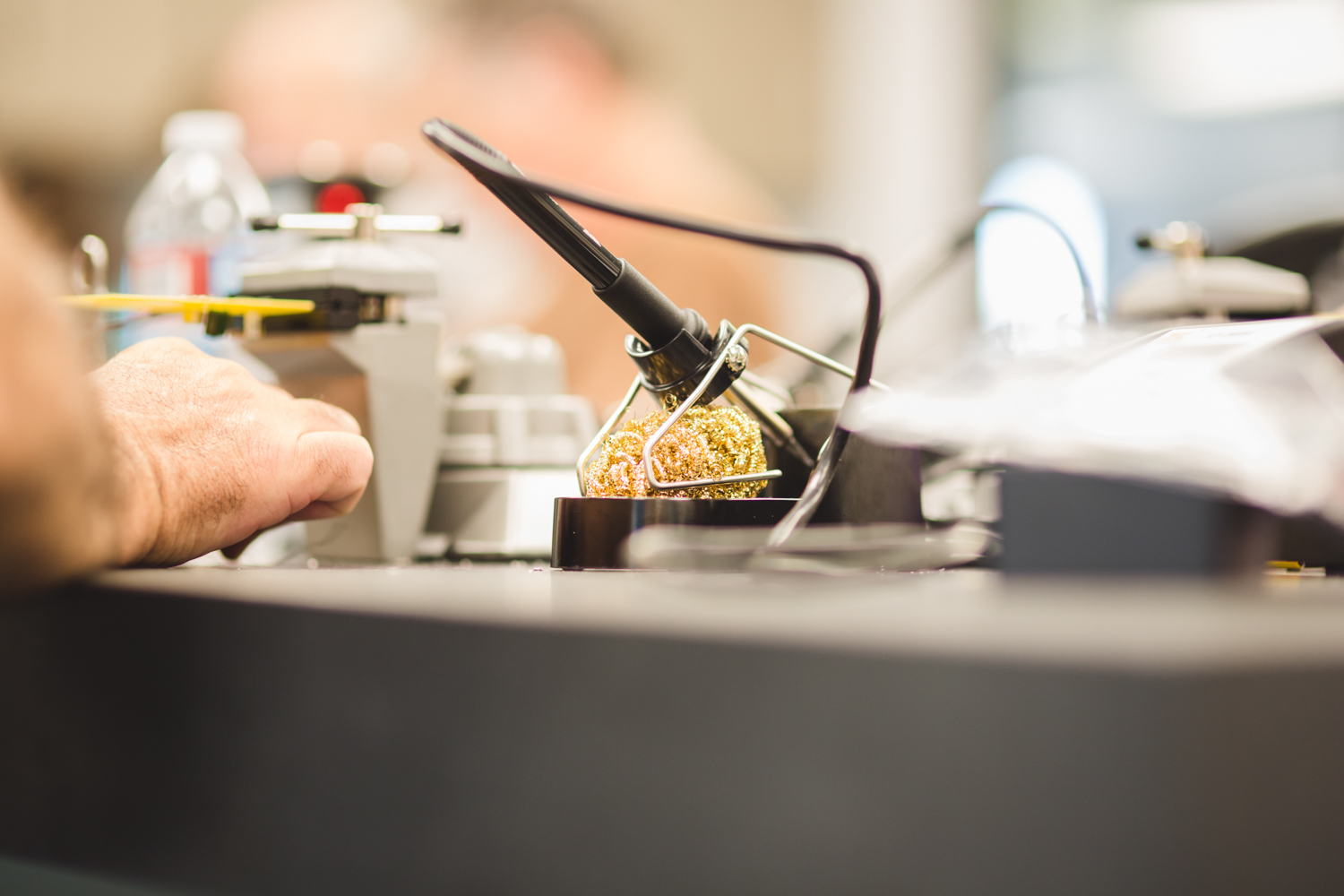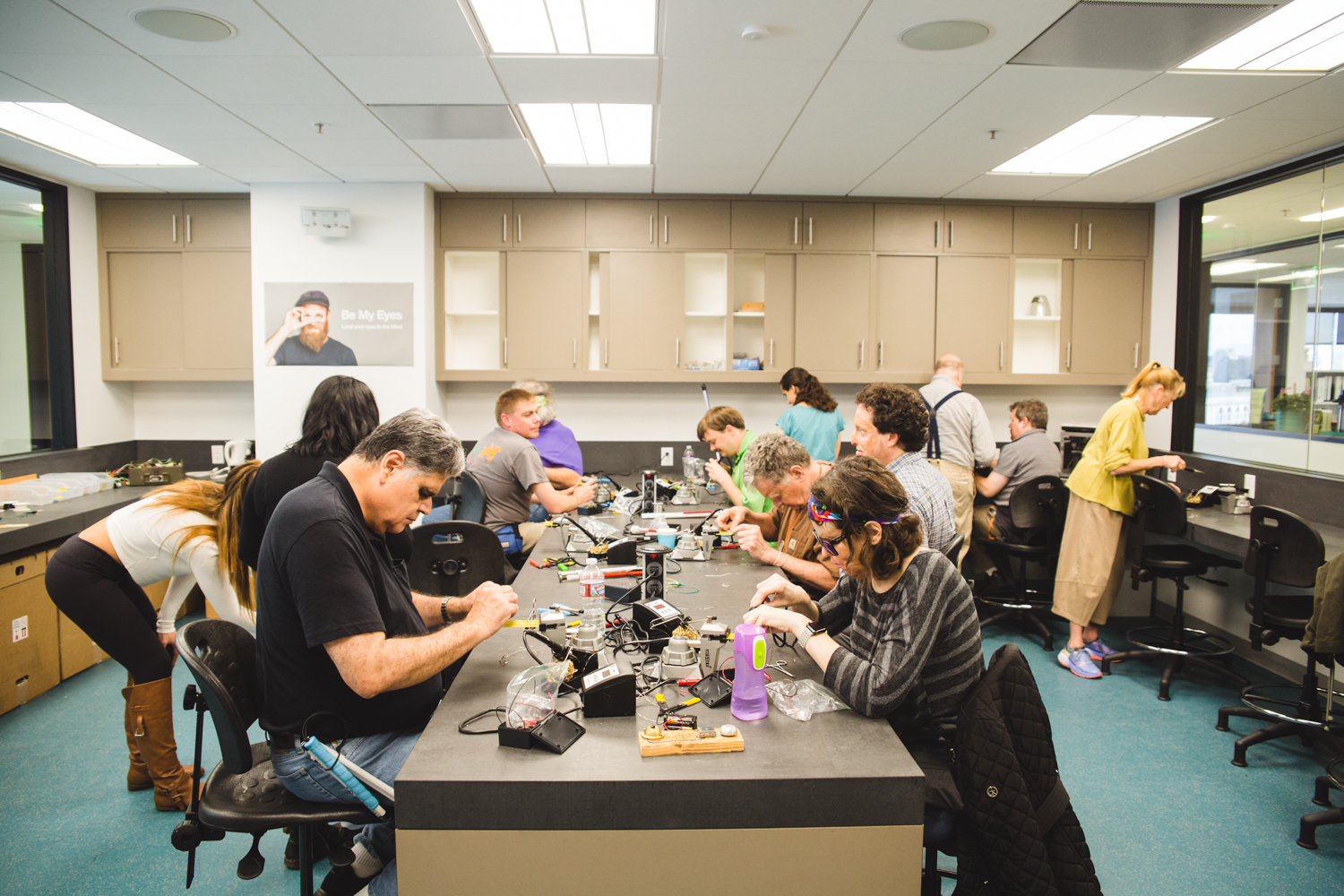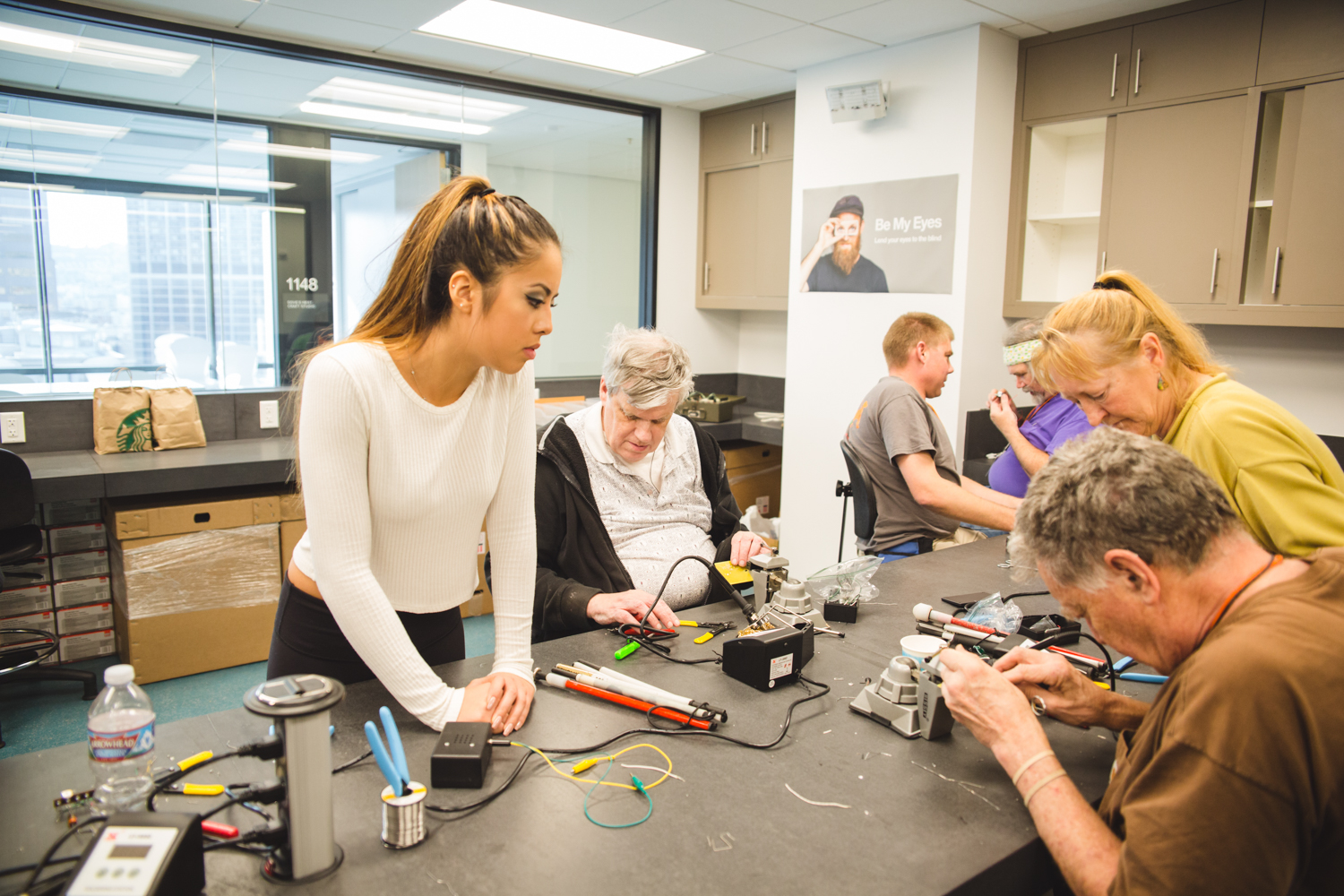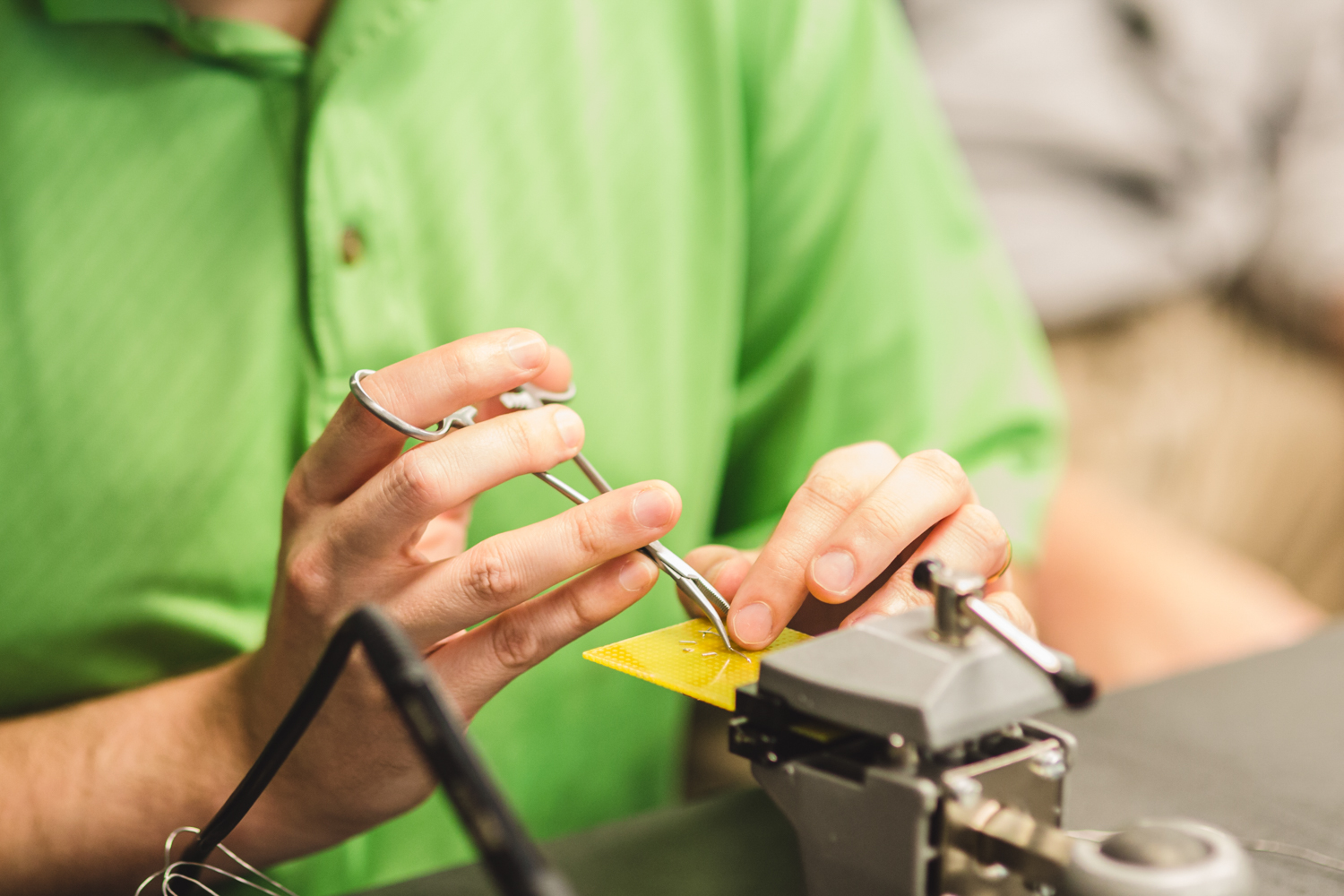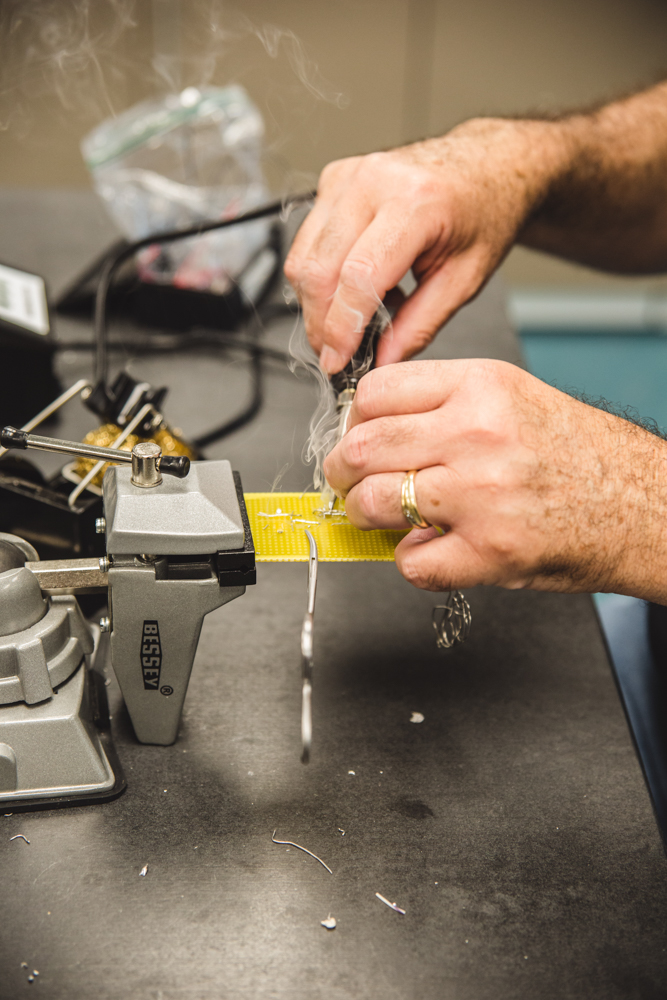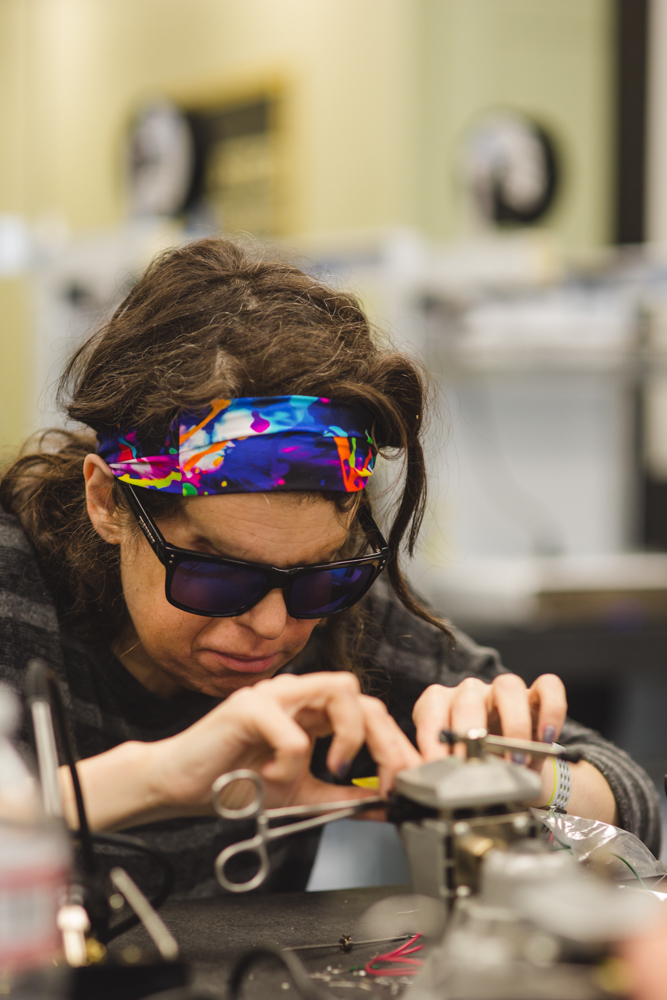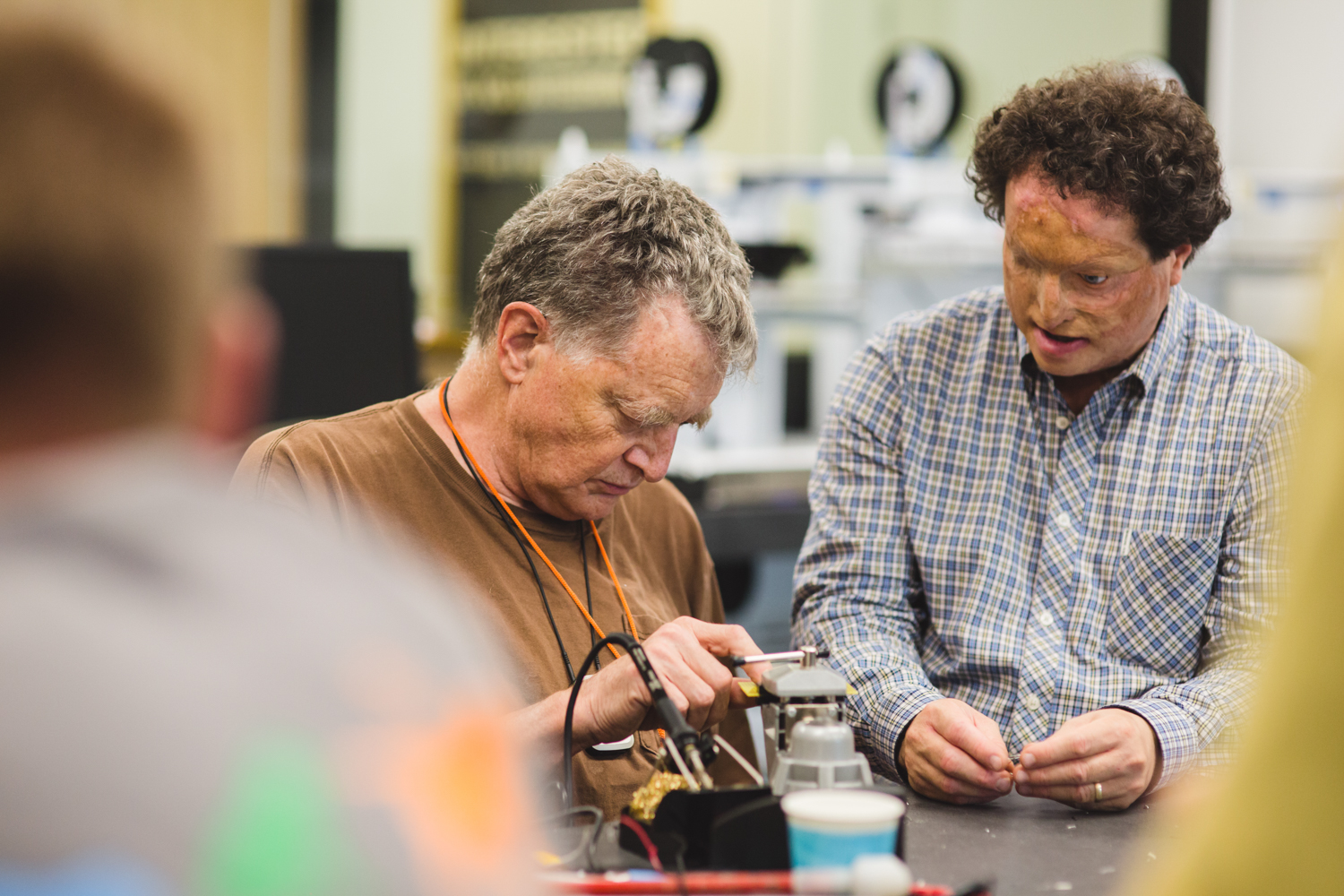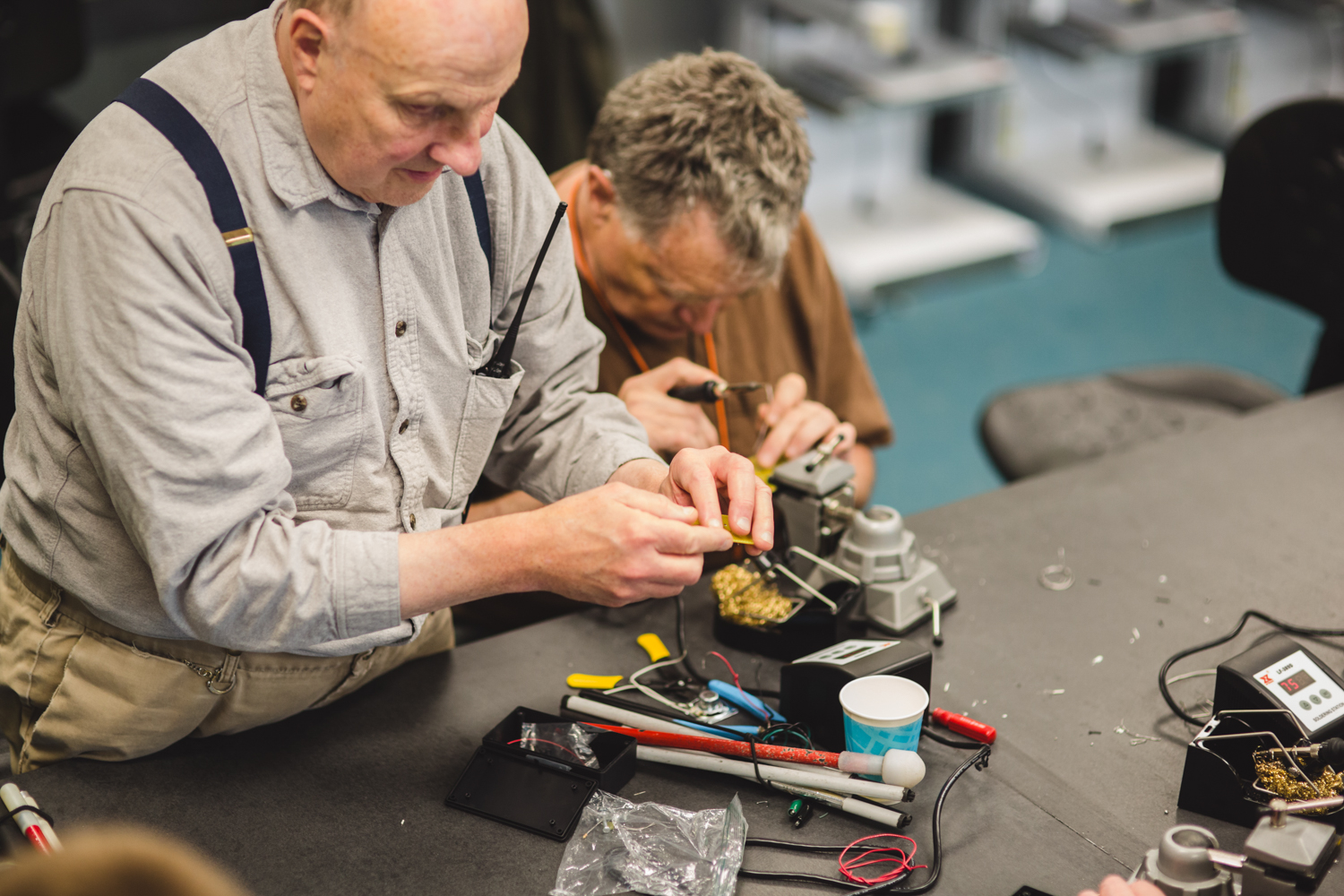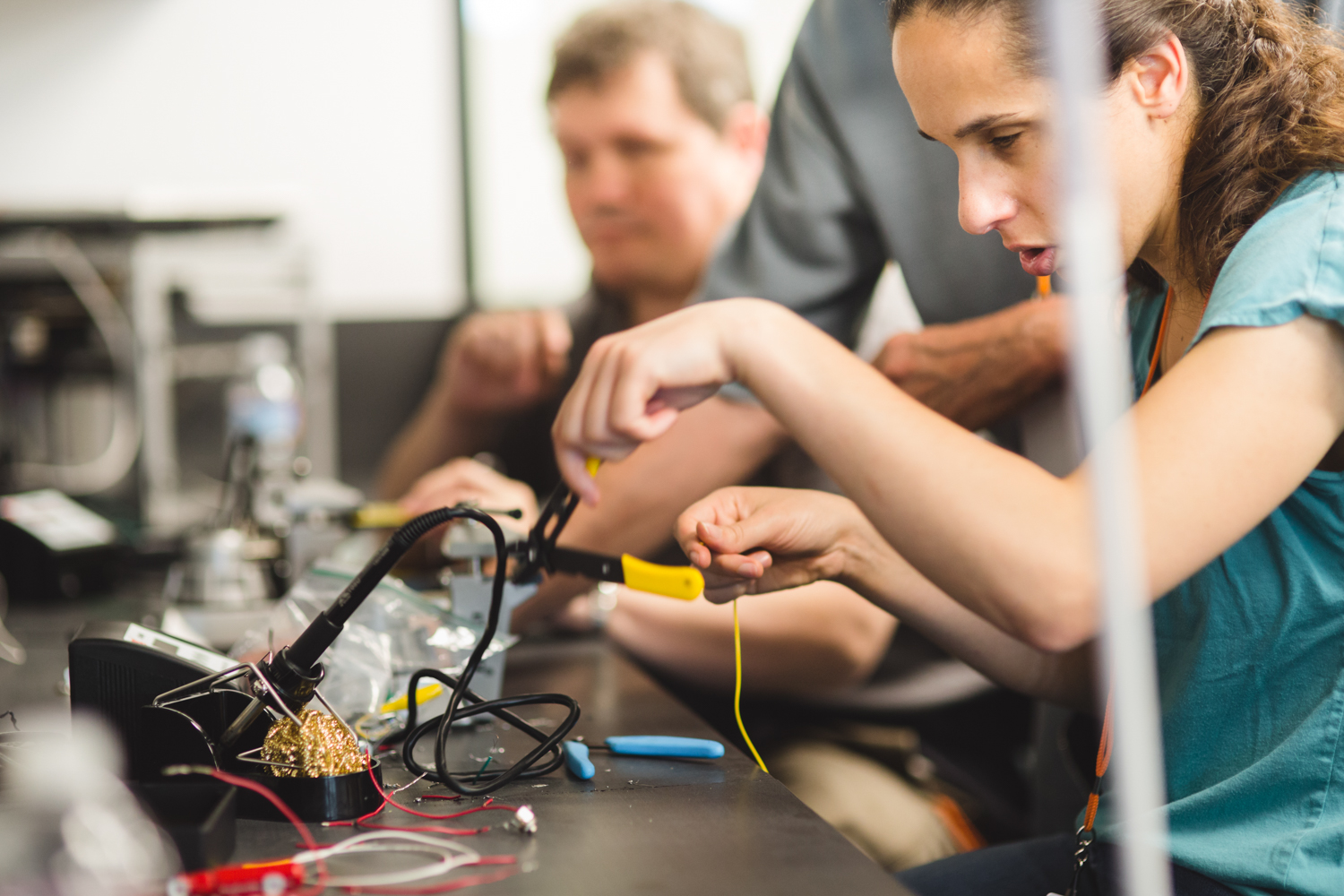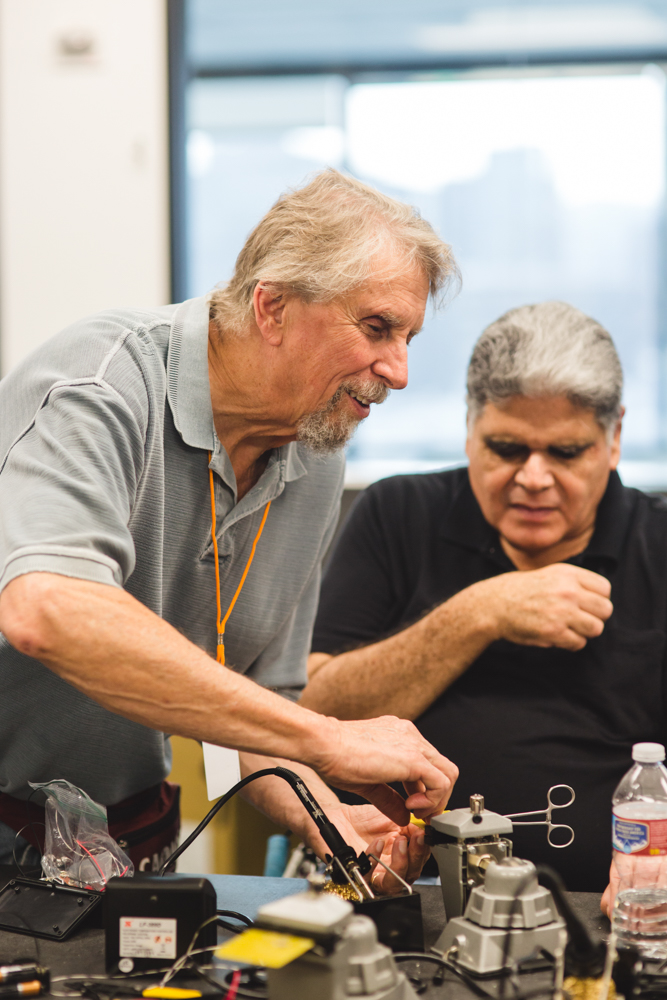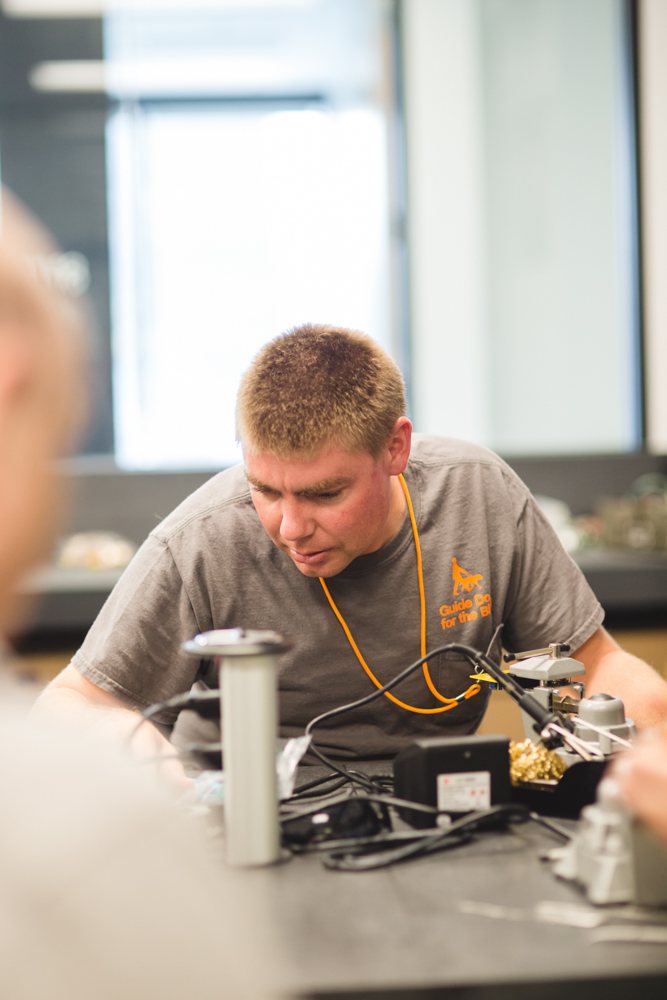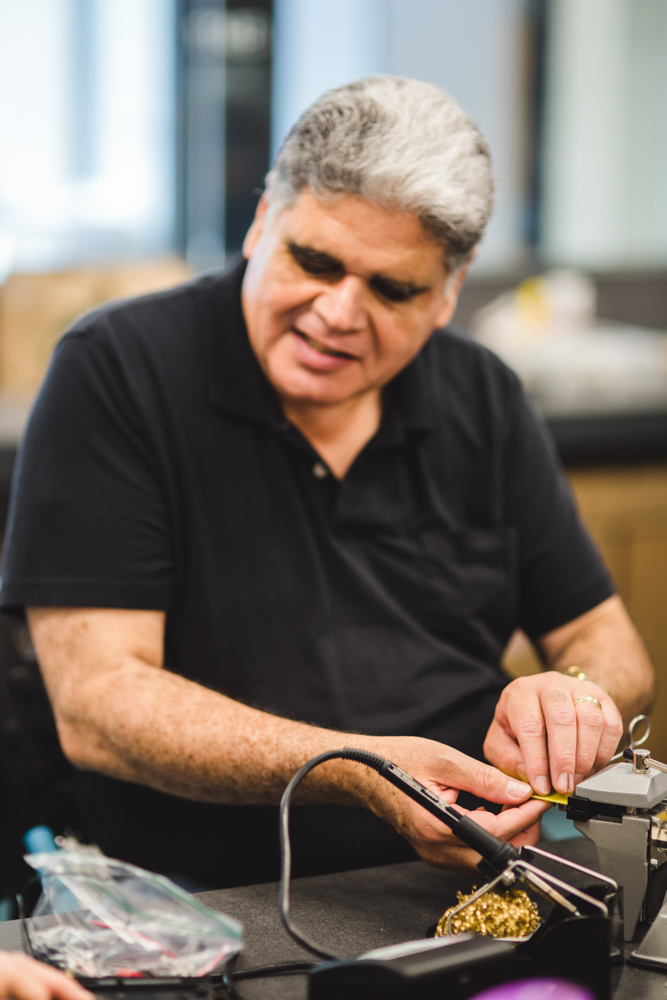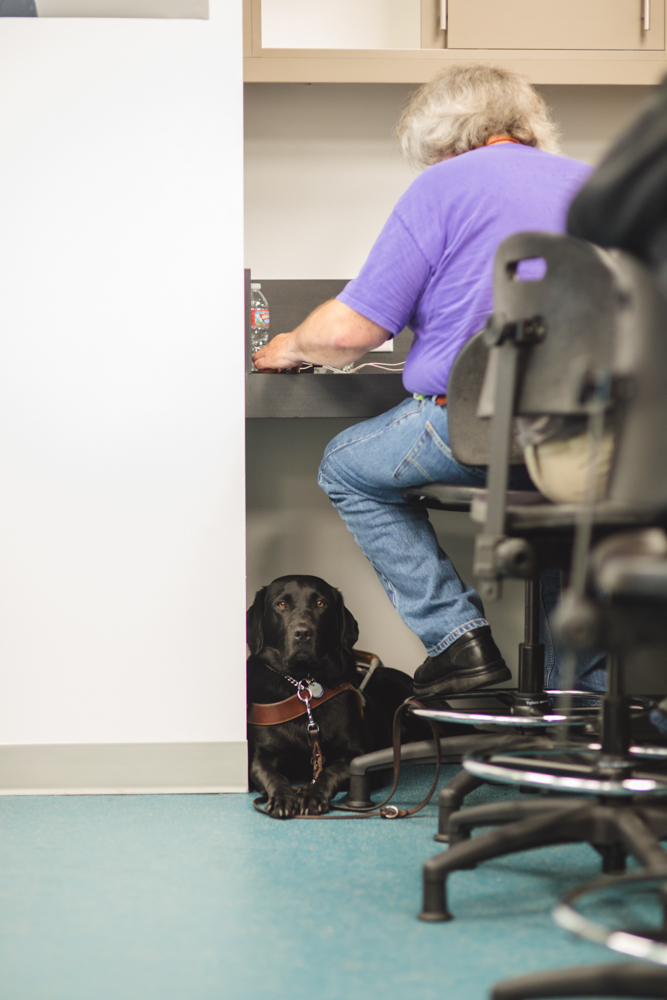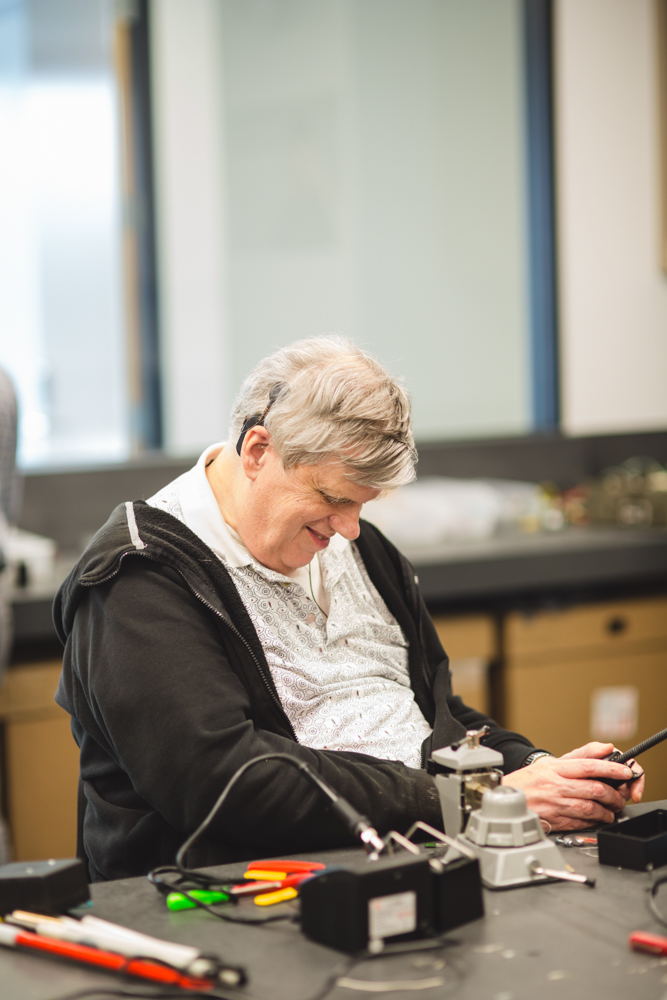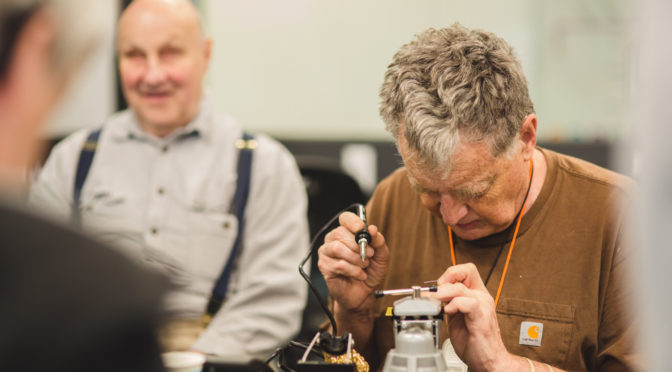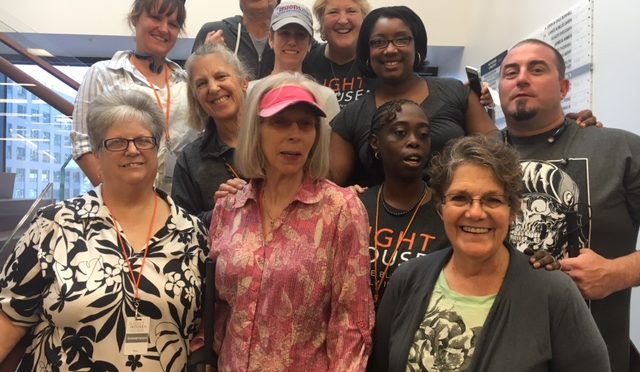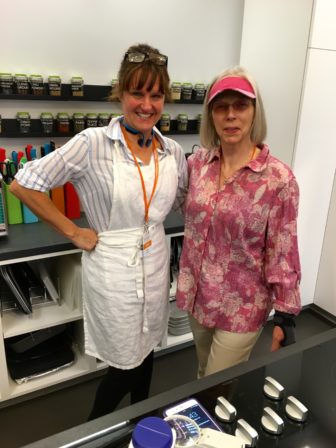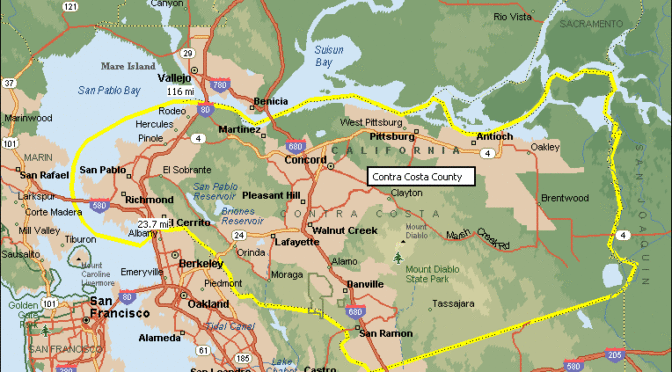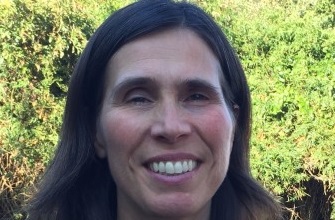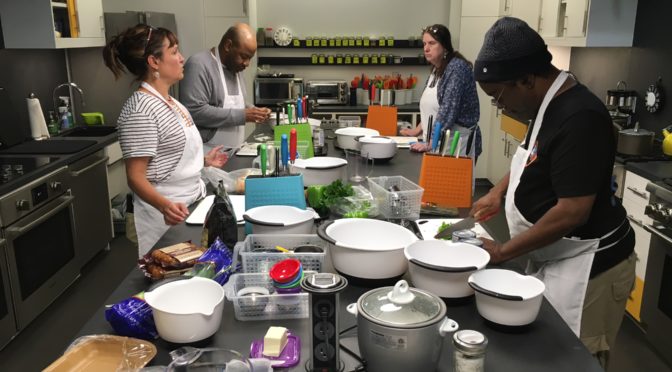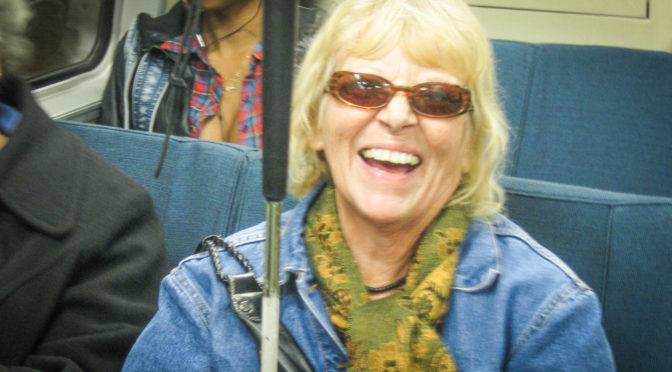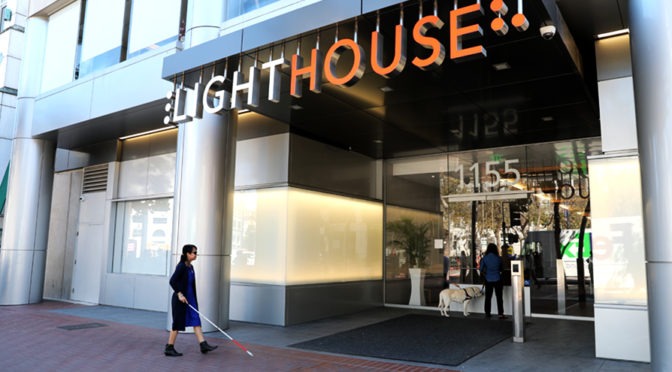Our team of teachers and specialists (many of whom are blind or have low vision themselves) are highly trained and experienced in teaching low vision and nonvisual techniques and strategies.
Our goal is to teach skills and strategies that you can apply throughout your life to help maintain your independence. From learning essential safe travel skills in your home and community to accessing your mail or favorite book, the LightHouse strives to meet the needs of any individual seeking to improve their quality of life and self-reliance.
Each person has their own journey and pace for learning new skills, and our teachers will meet you at your level of readiness and will encourage your growth. If you are open to learning how to do something in a new way with your changing vision, we are ready to provide the training and support you need.
For those who are new to low vision or blindness or have a recent change in their vision, we recommend our flagship program, Changing Vision, Changing Life.
Immersion Training: Changing Vision, Changing Life
Changing Vision, Changing Life (CVCL) is an introductory immersion program for adults who are newly blind or have experienced a change in vision. The week-long program introduces basic and essential skills to live confidently at home and in the community. Topics include organizational skills and labeling, navigating safely, introduction to adaptive aids and technology, and discussions on adjustment to changing vision.
While CVCL introduces students to invaluable blindness or low vision training and techniques, the bigger purpose is to bring people together to learn and share experiences in a supportive environment. The instruction is designed to motivate students to learn more and to envision all the possibilities. Many students who attend CVCL return to leading full, active lives while remaining enthusiastically engaged with the LightHouse.
Students do not need to live in the Bay Area to attend CVCL. Our facilities in Napa and San Francisco are equipped with lodging and provide meals to keep you comfortable and nourished throughout the training.
Read about CVCL in the New York Times!
In addition to CVCL, listed below are the core learning opportunities in which you can participate as a student. All these skills can be learned from our headquarters in San Francisco and most of them from our satellite offices: LightHouse East Bay, and LightHouse of the North Coast,
Orientation and Mobility (O&M)
The ability to move about independently with confidence and grace is an essential step towards self-confidence, independence and living a full life, and the goal of O&M Training.
“Orientation” refers to the ability to know where you are and where you want to go, whether you’re moving from one room to another, walking a route from your home to downtown, taking a bus from one place to another or ‘orienting’ to a new worksite or school campus.
“Mobility” refers to the ability to move safely, efficiently, and effectively from one place to another. This means walking confidently without tripping or falling, crossing streets, and using public transportation. Mobility training includes learning to use essential tools like a cane or a monocular telescope for those with low vision, and strategies, such as listening for traffic patterns when crossing the street or using accessible pedestrian signals.
LightHouse O&M Specialists recognize that traveling ‘independently’ is different for everyone; in addition to learning basic skills, students can learn alternate systems for travel such as Human Guide or using community Paratransit. Additionally, they provide training in GPS navigation systems using smartphone apps, tactile map reading skills, spatial awareness, and other sensory skills.
O&M Training is available to individuals, and to small groups through our O&M: Get Moving class and other workshops.
Essential Living Skills
Essential living skills, often called Independent Living Skills or Daily Living Skills, are the essential skills you use in your daily life. Your approach to these skills can change if your vision changes. Our teachers provide you the tips, strategies, simple modifications, and tools to continue your routine at home, school or work. The emphasis is on teaching transferable skills, where individual skills can be applied to many activities.
Here are some of the specific areas we address:
- Organization and labeling (visual and non-visual)
- Sensory Skills (non-visual and low vision)
- Environmental modification
- Adaptive Devices and Technology (blind and low vision)
- Food Preparation and Cooking Skills
- Clothing Care and wardrobe management
- Paper Management (bills, correspondence)
- Household Management and housekeeping
- Personal Hygiene Care
- Record Keeping and managing financial/household documents
- Time and Calendaring Management Tools
- Shopping (from on-line to in-store shopping)
- Social and Recreational Involvement – getting back to a routine of fun!
- Smartphone training and relevant apps
ILS training is available to individuals, and to small groups through our Low Vision Skills: Putting it All Together class, Language of Listening class, and other workshops.
Braille
Braille, an accessible tactile reading and writing system, is essential to blind literacy. It is also crucial in pursuing education and employment.
The LightHouse is dedicated to teaching Braille and offers individual sessions every day of the week. Our programs support businesses, schools, and community agencies with the aim of providing and maintaining access to Braille.
Adult students of all ages can benefit from learning Braille at various levels:
- To produce simple labels
- To write notes or shopping lists
- To play cards with friends and family
- To learn contracted braille for note-taking, reading textbooks or documents, or using refreshable Braille displays with computers or smartphones
To receive low vision or blind skills training, contact:
To find out more and to get started receiving services, please call us at 415 -694 -7323 or email us at info@lighthouse-sf.org

